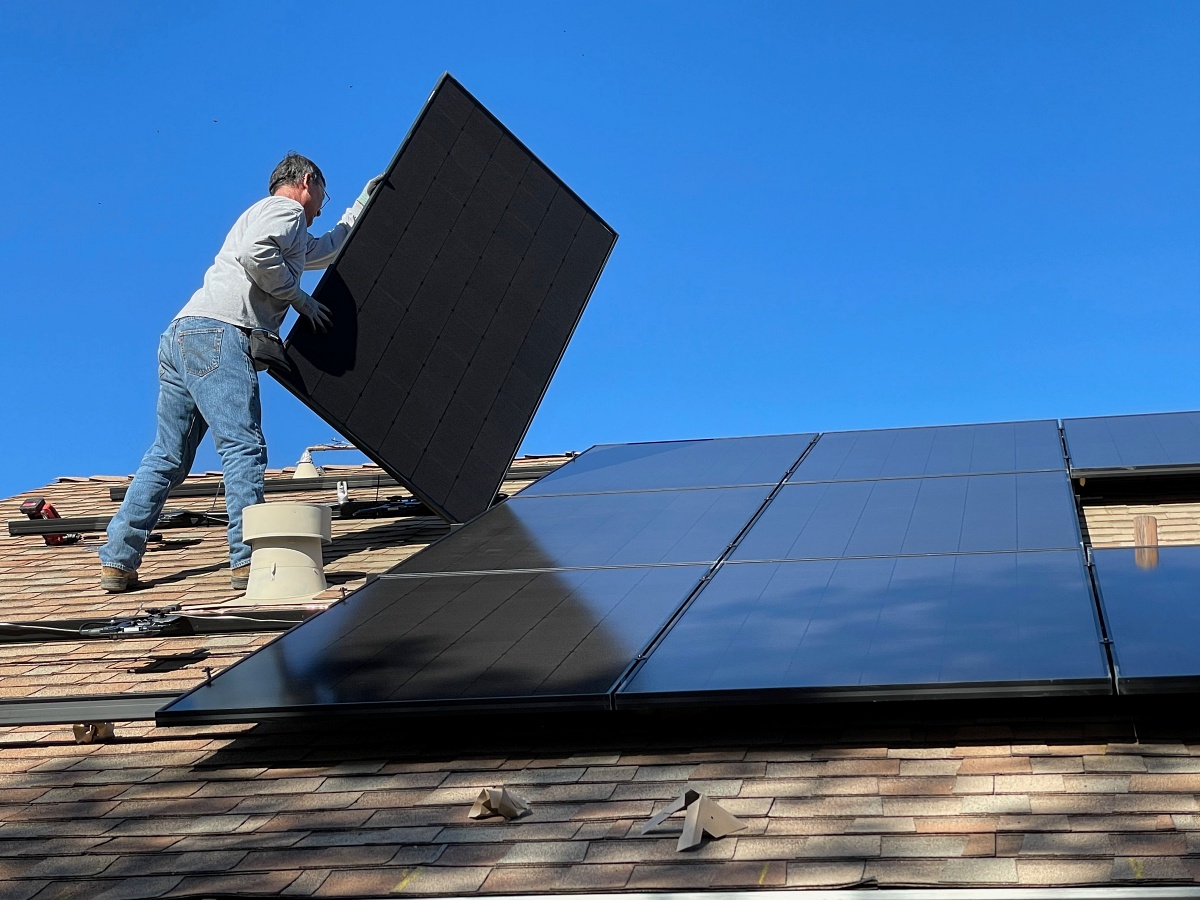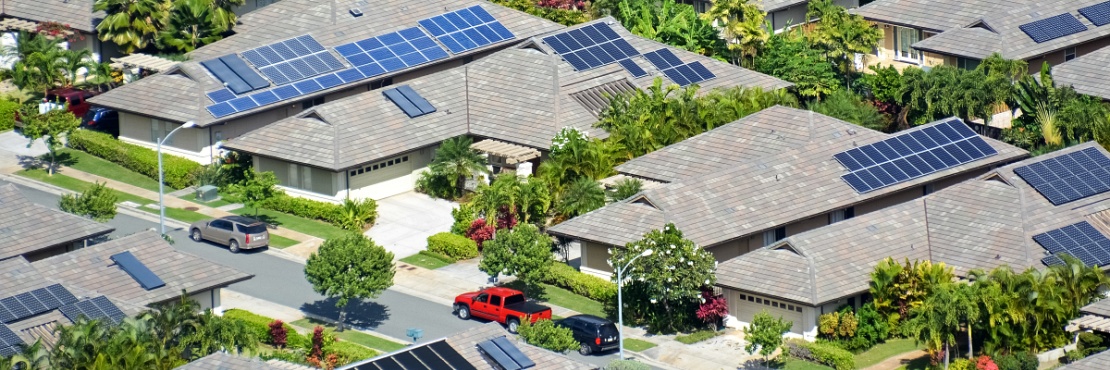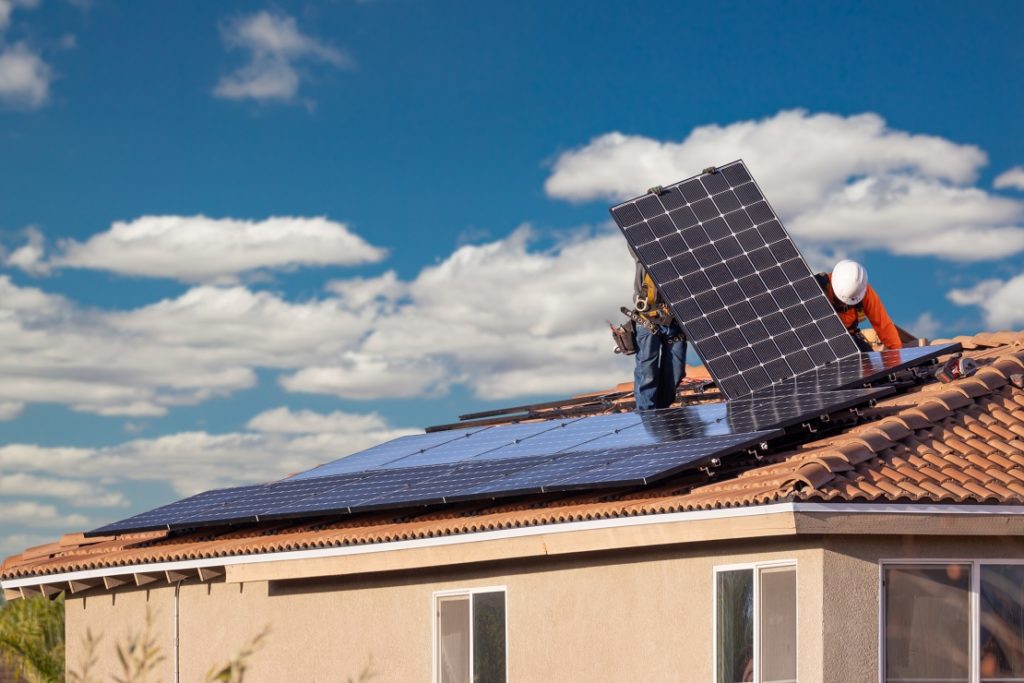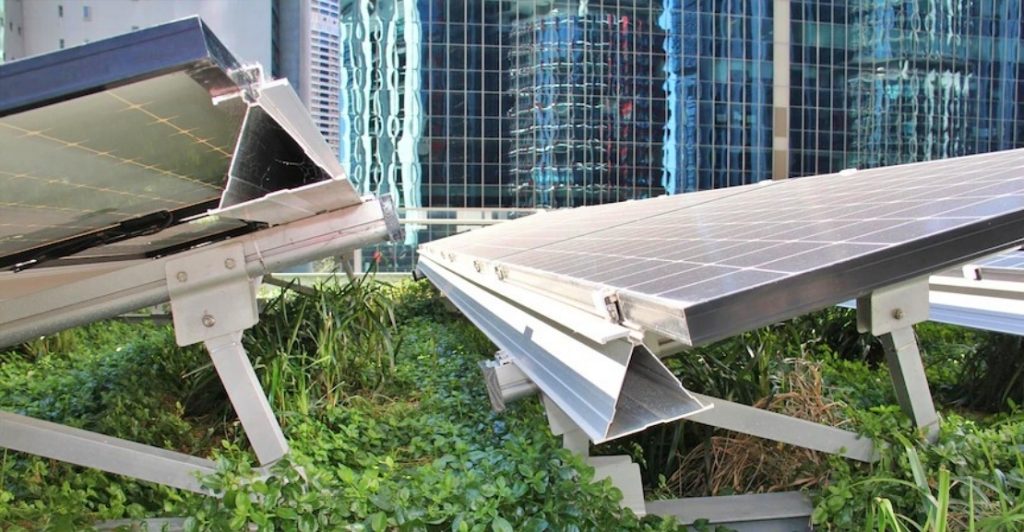Promoted by EcoWatch
In recent years, homeowners have become increasingly zealous for ways to minimize their environmental footprint, often by reducing their dependence on traditional utility companies. One of the clearest solutions is to invest in solar panels, which harness the sun’s rays, convert them into useful energy, and distribute that energy throughout the home.
For some homeowners, solar panels can curb dependence on traditional electrical companies, perhaps even allowing homeowners to sever ties altogether. But residential solar technology isn’t without some inherent limitations. This raises the question: Are solar panels right for your home? Here’s a quick investigation.
Are Solar Panels Even Right for You?
To begin with, it should be noted that solar panels provide better value for some homeowners than for others. The primary factor that determines the value of solar is your home’s location. Some of the main considerations include:
- Sun exposure. For solar panels to work optimally, you need to live in an area where your home receives a lot of direct sunlight.
- Roof space. You’ll need some decent surface area on your roof, free and clear of chimneys and skylights.
- Electrical costs. If you live in a region where utility costs are fairly high, then you’ll likely receive greater benefit from switching to solar.
- Tax incentives. Everyone can claim the federal solar rebate, but some states or municipalities have their own incentives to sweeten the deal.
Do you have a green roof or are you considering installing one? Solar panels can be a natural addition to flat or low-slope green roofs. In fact, the synergies of solar and vegetative roofs (called biosolar roofs) create higher energy productivity due to the cooling facilities of the plants below the panels. Solar panels work better when they are not too hot.
By contrast, solar panels may not be as advantageous if your home gets limited sun exposure; if you are ineligible for significant rebates; if you already have low electrical costs; or if you don’t have a roof that’s well-suited for a solar installation.

Photo by Bill Mead
Overview of Pros and Cons
Even assuming you are a good candidate for solar panels, there are still some notable pros and cons worth highlighting.
To begin with, here are some of the pros:
- With solar panels, you can significantly reduce, or even eliminate, your electrical bills. This is the most obvious advantage of investing in solar panels. By generating your own free electricity, you can dramatically lessen your need for conventional utilities.
- Installing solar panels can help you curb your carbon emissions. When you use solar panels to generate your own electricity, you offset some of the greenhouse gas emissions associated with fossil fuels. This helps lower your community’s overall environmental impact.
- An investment in solar panels can increase the value of your home. It’s also worth noting that solar panels are increasingly prized by homebuyers, which means they can cause your home resale value to increase substantially.
- Going solar makes you eligible for tax incentives. There are a number of solar tax credits and rebates that enhance your financial savings, all while offsetting some of the initial startup cost of installing solar panels.
There are clearly some incredible benefits to going solar, but what about potential downsides? Consider a few of the biggest disadvantages to installing solar energy:
- Solar won’t work on every roof. If your roof is covered in skylights or obscured by tree coverage, solar panels won’t work as well.
- Solar panels are very dependent on location. Again, some locales allow you to get more value from solar panels than others. Some regions have very low electrical costs and ungenerous solar incentives.
- There’s a big upfront cost to going solar. You can anticipate installation costs ranging from $10,000 to $20,000, which is no small price.
Only by weighing these pros against the cons can you make a fully informed decision about whether you should get a residential solar system.
Determining Which Panels are Right for You
Assuming you do want to move ahead with a solar installation, you’ll also need to make some judgment calls about the type of panels that are right for you. Consider three basic options:
- Monocrystalline solar panels have the highest efficiency and longest lifespan but are also the most expensive option overall.
- Polycrystalline solar panels provide a better balance of cost and efficiency, though they are slightly less productive than monocrystalline panels.
- Thin-film solar panels have the lowest cost per panel, but they also have the lowest efficiency. They also tend to be the least durable type of solar panels.
If you have a green roof, integrating these technologies will require heightened coordination between installation teams, mostly in terms of labor efficiency, communication, and timeliness.
By working with a skilled solar installer, you can determine which type of panel is the best fit for you.
Moving Forward with Solar Panels
Solar panels aren’t perfect, and they aren’t for everyone. For many homeowners, however, solar panels provide an excellent way to lower utility costs and curb greenhouse gas emissions. Consider solar panels as a potential complement for your roof, whether greened or not.
If you have a green roof, integrating these technologies will require heightened coordination between installation teams, mostly in terms of labor efficiency, communication, and timeliness.
 Greenroofs.comConnecting the Planet + Living Architecture
Greenroofs.comConnecting the Planet + Living Architecture









